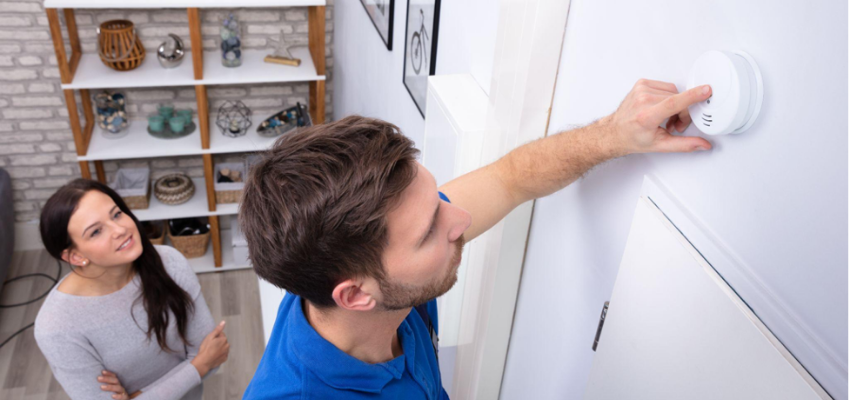Home Fire Prevention and Safety Tips

With the cold weather coming right around the corner, it is the perfect time to brush up on your fire safety. According to the National Fire Protection Association, more home fires occur during the winter months than any other season of the year. As New Englanders we tend to cozy up by the fireplace, light our scented candles, and do more cooking at home during this time. It is important to remember that an accident can happen, and within minutes a fire in your home can become life-threatening. There are some things you can do to decrease your risk — to keep you and your family safe, your friends at Bearingstar put together this fire prevention guide.
Smoke alarms
Be sure you have smoke alarms properly set up and working in your house. According to the National Fire Protection Association, smoke alarms should be installed on every level of your home, including the basement. Fire detectors should also be installed inside every bedroom and outside each sleeping area.
Once you have your detectors installed, it is vital that you understand what each noise means:
- A continuous set of three loud beeps—beep, beep, beep—means smoke or fire. Get out, call 9-1-1, and stay out.
- A carbon monoxide detector in alarm will send a series of four loud beeps – beep, beep, beep, beep.
- A single “Chirp” every 30 or 60 seconds means that the battery needs to be replaced.
You should replace the batteries in your detectors at least twice a year. A great way to remember this task is to do it this Daylight Saving Time ends and begins.
Fire extinguishers
Fire extinguishers are essential for putting out and minimizing the damage of small fires quickly. Be sure you have a fire extinguisher readily available in your home and that everyone in your household knows how to use it. If you need some guidance, your local fire department is usually available for fire extinguisher training. You can also visit the U.S. Fire Administration’s website for instructions on how to choose and use a fire extinguisher.
Heating your home
Whether you are heating your whole house or just a room, here are some safety tips to keep in mind:
- Fireplaces
- Have your chimney inspected by a certified professional annually. Debris can build up within the walls of your chimney, which can lead to a home fire.
- Use of a fireplace screen and keep it closed to prevent sparks from jumping onto surfaces within your home.
- Avoid placing flammable items within 10 feet of your fireplace.
- Space heaters
- Before turning on your space heater, inspect it for any cracked wiring or broken plugs. If it is damaged in any way, do not use it.
- Never use an extension cord or power strip with a space heater — the amount of electricity they pull can cause a circuit overload, which can result in a fire. Be sure to always plug them directly into a wall outlet.
- Turn off and unplug the heater when you’re leaving a room or going to sleep. Your space heater should never be left unattended.
- Baseboard heat
- While the risk for a fire with baseboard heat is low, it is important to be mindful of temperature and object placement. If you have curtains that hang near or above your heater, make sure they are not close enough to touch. Any furniture that may end up being in front of your baseboard heater should also be at least 6 inches away.
Additional Home Safety
- Keep candles at least 12 inches from anything that can burn and blow them out when you leave the room.
- Be sure to thoroughly clean your clothing dryer and clear the lint trap after every load of laundry. Lint can gradually build up and catch fire in the heating element or exhaust duct.
- Properly store any flammables — common items that are flammable include paints, polishes, solvents, cleaners, alcohols, acetone, adhesives, diesel fuel, motor oil, and gasoline.
- Have your furnace inspected annually by a licensed and insured HVAC professional.
Escape Plans
Meet with your household to create and regularly practice a fire evacuation plan. The American Red Cross offers this printable graph you can use to draw your home’s floor plan and plot your home fire escape routes.
Our agents take a collaborative approach in order to provide customized insurance solutions and guidance to safeguard what matters most to you. Contact your local Bearingstar Insurance office or agent for a homeowners insurance policy review today.
Back to Blog